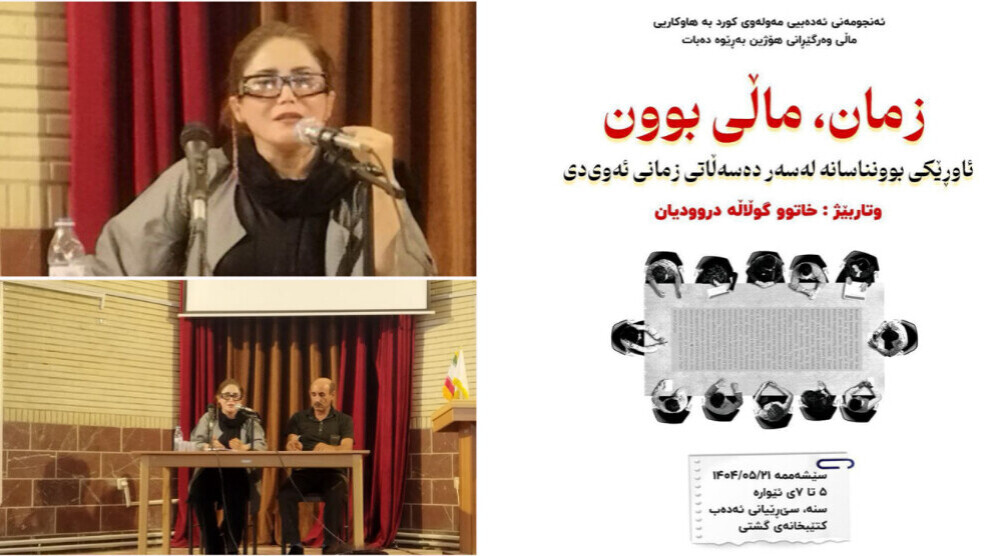Linguist Galale Derudian: Our language is our home, our shelter
“When we start thinking in another language, that time we will lose our identity,” said Galale Derudian, a Kurdish linguist in Rojhilat Kurdistan, highlighting the urgent need to protect and preserve native languages.

RAHA NEZERÎ
Sanandaj– “Bilingualism and cultural assimilation pose a serious threat to the Kurdish language and identity,” said Galale Derudian, a poet and linguist, at a meeting held in Sanandaj, highlighting the urgent need to protect and strengthen the Kurdish language.
At the meeting held at the Sine Central Library on August 11, 2025 by the Molavi Sine Association in collaboration with Hojin Translation House, many issues such as the origin of grammar, the marginalization of native language in education and daily life, the process of using another language, and the psychological impacts of bilingualism.
Speaking at the meeting, Galale Derudian said that prioritizing the native language, the bilingual identity crisis and the effects of language on the individuals should be examined and documented. She started her speech by asking two questions: “How do you view language? As Kurds and bilingual individuals, we receive education, speak, write and even think under the hegemony of another language. In such circumstances, how can we view our own language?”
Language as source of existence
Mentioning the history of linguistics, she said: “Individuals in a society must communicate, and language is the most essential tool for this. How much does this tool shape human thought and understanding? The earliest document is the work written in the 4th century BC by Indian grammarian Pāṇini for the interpretation and preservation of Vedic texts. Although civilizations such as Sumerian, Egyptian, Chinese, and the Hebrews also conducted studies on grammar, Panini’s work is recognized as the earliest systematic grammar of any language.”
She also talked about the thoughts of German philosopher Martin Heidegger and said, “Without language, lies, love, crime, or mercy would lose their meaning. For Hans-Georg Gadamer, understanding is always linguistically mediated.”
Mental effects of bilingualism
Individuals who speak their mother tongue at home but must use another language for education and written communication face mental confusions, said Galale Derudian. “This causes an impact that is felt throughout life, from childhood to adulthood.”
Recalling her own childhood in Kamyaran, she said: “In daily life, we mostly spoke Persian, while Kurdish was used only about one-third of a day.” Galale Derudian often asked people around her the meaning of Kurdish words in order to learn her mother tongue. “Every language creates a worldview and experience. When we read, receive education, and communicate in another language and speak with children in another language, it causes serious fragmentation in our psychological world,” she added.
Warning against cultural, linguistic assimilation
Galale Derudian concluded her speech by emphasizing the cultural assimilation imposed on the Kurdish people and the influence of Turkish, Arabic, Arabic and Persian languages on the Kurdish language. “When we start thinking in another language, that time we will lose our identity and it means assimilation has already started. Preserving and strengthening our mother tongue is vital, because language is our home, our shelter, and the only way to preserve our identity, experiences, and worldview.”
